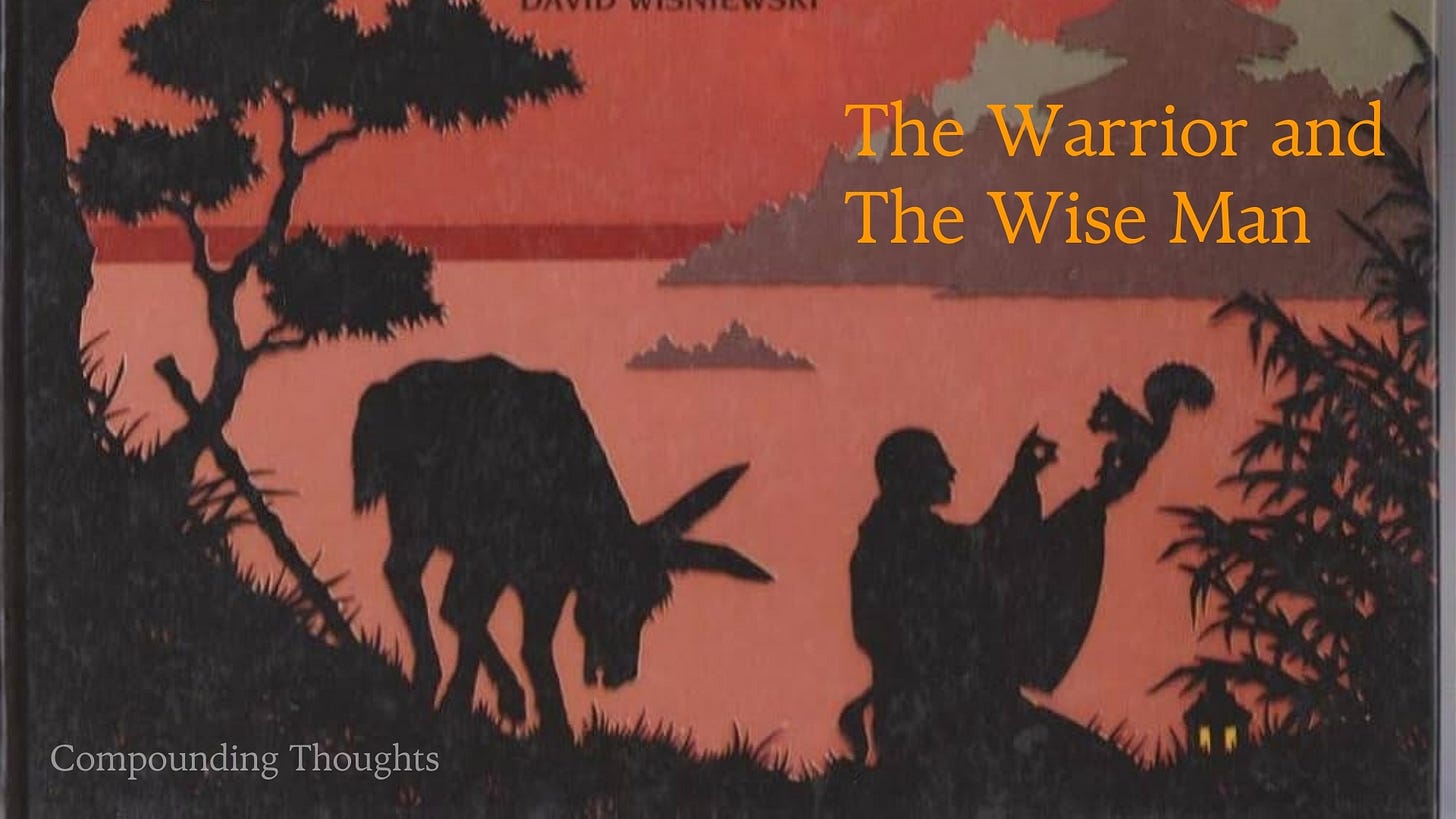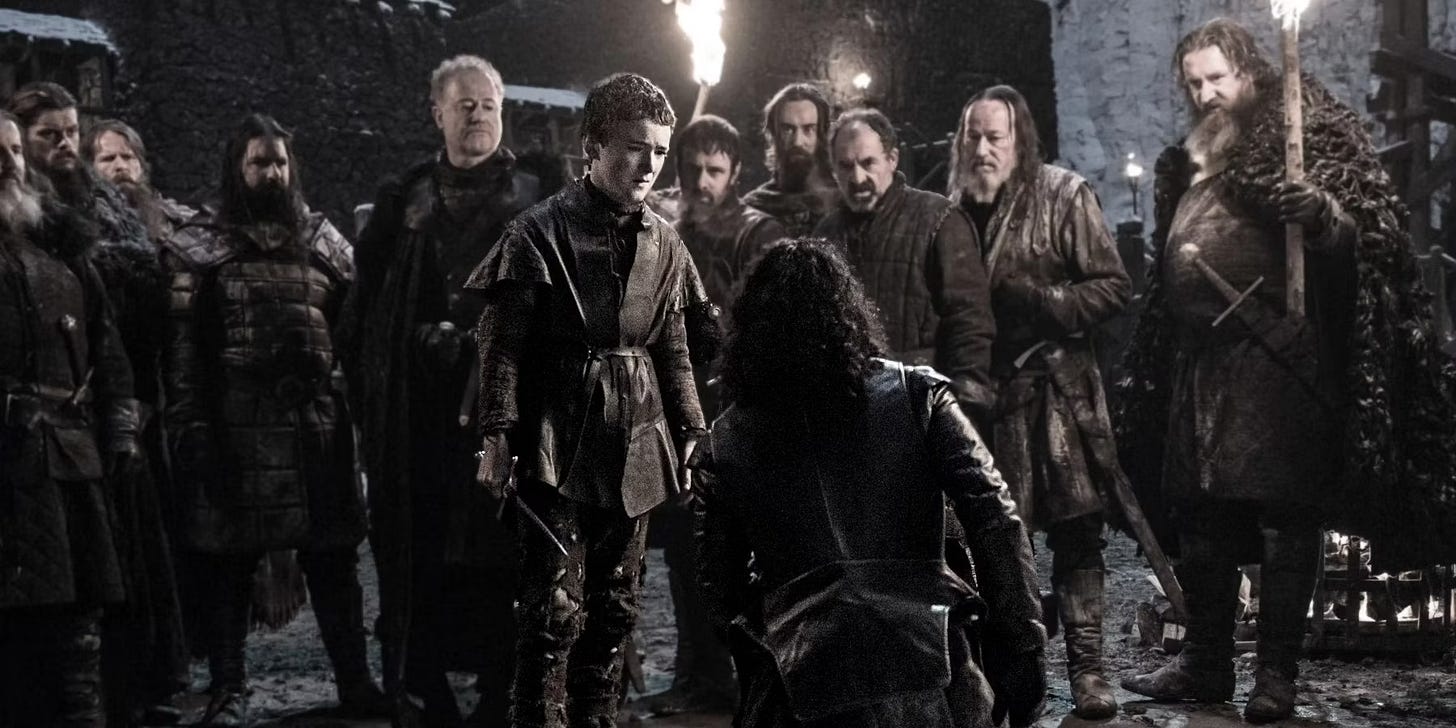I. Politics at Dinner
Most of us were raised on the principle that there are two topics to avoid discussing at the dinner table: Politics and Religion.
Are Politics and Religion inherently bad topics?
Religion uses parables to guide society in a way that ideally leads to a complete and good life. Politics uses policy to accomplish the same aim. Those don’t seem like bad subjects. In fact, they seem like two topics that lead to thoughtful conversations in the pursuit of bettering oneself and each other.
Politics and Religion are nuanced. They are filled with riddles and contradictions, interpretations and subjectivity. One is never objectively right in their interpretation. There is no such thing as objective truths, like say in mathematics and physics.
Indeed, Politics and Religion both exist because of the imperfections of man. Thus, by nature, our understanding of them are imperfect.
So why are these subjects taboo?
For one, this is not how many people approach these subjects. Many people view politics and religion as zero-sum, rather than positive-sum, games. In this approach, the goal is not to learn, but to win. Win an argument. Win an election. Win power.
Thus, in a popularity contest, one would expect persuasion to be the goal of such discussions in this game. But often, people enter political and religious discourse with no motivation of persuasion. You’re wrong and I’m right, no matter what you say.
That seems completely antithetical to essence of these subjects. The only objective truth is that you are never entirely right. It’s irrational to think otherwise.
So why do we behave this way?
It is because in each of us there is a Warrior and a Wise Man.
The Warrior is the version we often wear to subconsciously protect ourselves in society. The Warrior seeks to protect itself by being part of a tribe. To better his life, the Warrior seeks to ascend the hierarchy of this tribe. To do so, the Warrior needs to attain glory.
When The Warrior enters the realms of politics and religion, The Warrior’s motivation is to engage in discourse that maximizes his chance for glory. Thus, The Warrior seeks out information that confirms his bias, and share that information with other people in his tribe with the same bias who view him as a worthy defender of their ideological tribe.
The Warrior doe not engage other tribes in diplomacy or civil discourse. There is no social capital to gain, and in fact, The Warrior could be perceived as a traitor by doing so.
Just ask Jon Snow.
Ideas, in the world of The Warrior, are feudal.
Instead, The Warrior engages by warring with other tribes in the quest for glory. The Warrior wants to return home as a conqueror, not a conciliator. The modern Warrior uses social media as its arsenal. ‘Dunking on someone’ satisfies the (social media) Warrior’s subconscious need for violence and conquest and glory. Social media Warriors have higher status in their tribes and recognize that the subjects of politics and religion are efficient theaters of warfare that can be fought using the arsenal of Social Media. So they rationally seek them out to ascend the social hierarchy of their tribe.
We avoid discussing politics and religion at dinner because Warriors make strange dinner companions (and bedfellows). We don’t want the dinner table to become a battlefield. But we often fail to recognize the causation of such a reality. It is not the essence of the subjects that causes this, it is the essence of man.
But being a Warrior is a choice.
Politics and religion do not have to be battlefields. They can be universities and campuses and libraries and forums and amusement parks.
So they are to The Wise Man.
These are subject matters that create the campuses by which The Wise Man can venture in his infinite quest for wisdom. The Wise Man plays a positive-sum game. The Wise Man recognizes that his politics and religious principles, by nature, will always be wrong and incomplete to some degree. Thus the Wise Man knows that this campus always has more for him to learn.
The enemy of this is confirmation bias, which is the weapon of The Warrior. It is the fallacy that blinds so many of us, the belief that the purpose of engaging in discussion and pursuing “knowledge” is to reflexively confirm our preexisting interpretations and beliefs and conquer those who oppose us. That is the opposite of wisdom.
The Wise Man knows enough to know that he knows nothing at all.
For many, learning is fun, and the quest for wisdom is a very productive — in economic and spiritual terms — way to spend your time.
The Wise Man pursues wisdom for the intrinsic journey of learning and becoming more wise, not the extrinsic reward of glory, conquest and tribal status that motivates The Warrior.
That seems like perfect fodder for dinner discourse.
But when we channel The Warrior, politics and religion become perverted. They lose their essence and take on a new form: side quests in a different game entirely, a game for status and glory. Not a game for learning how to better oneself and the world around you.
That is a choice we all make on an individual level. Which version of yourself will you choose?
II. How You Think > What You Think
People are interesting. What people think is less interesting, and insightful, in my opinion, than how they think.
Learning how someone thinks is very important. Every relationship you engage in, whether that is hiring a new employee or making a new friend, requires you to take on a lot of risk. The risk of this person’s future behavior. You are betting that they will behave in a consistent and positive way. Behavior is based on decisions, decisions are based on thoughts.
So diligencing how someone thinks seems to be the best way to diligence a person.
The best way to diligence how someone thinks is by exercising their ability to think and discuss topics that are highly subjective. Asking someone to explain their thoughts on the speed of light doesn’t tell you much. E=mc^2. It’s an objective truth. Asking someone to explain their thoughts on the conflicts in the Middle East does. There’s nuance. There’s no correct answer.
I find this very helpful during interviews. I often ask candidates to tell me a cause or topic they care vehemently about. They share. And then I ask them to argue how the opposing side could be right. Good thinkers will recognize that their position is a belief, not a truth, and as such someone with an opposing belief by nature has a position with merit and validity.
Are they curious enough to explore it, or have explored it? Do they have the intellectual humility to recognize that the topic they care most about is simply an interpretation, not an objective truth, meaning they could be wrong? Are they motivated by the quest for wisdom or for the quest for status and tribal glory? The former, I find, wander and imagine and are by nature self starters and highly resilient when you put them in positions where they can learn, the latter are much more fragile and prone to confirmation bias.
III. “Heavy” Topics Create Strong Intellects
We deem certain topics to be “heavy”. We also want people who are intellectually strong and mentally tough. Resilience is a good trait. We have created academic institutions to develop such individuals. Yet, paradoxically, these institutions run away from “heavy” topics.
That doesn’t seem like a good idea.
If you want to make your muscles stronger, you exercise by lifting heavier and heavier weights. If you want to make your intellect stronger and be mentally tough, you should exercise by lifting heavier and heavier topics. Heavy topics are heavy because they subjective. Nuance gives them weight. One lifts these through civil discourse and debate and investigation.
The goal is not to be right or to confirm one’s bias, but to get stronger through this exercise. Because this is not the game itself, it is the training for a larger game of life1.
Safe spaces and trigger warnings and censorship do the opposite. It make things extremely light. Lifting light things doesn’t make mentally tough and intellectually strong people, just like lifting light things doesn’t make physical strong people. Such people seem more inclined to want to learn what to think rather than how to think and to engage in games that motivate them based on external validation, rather than intrinsically for the journey of getting stronger and wiser.
That’s not good. I also could be wrong.
When society progresses, everyone benefits. The things preventing society from progressing are hard problems. To solve hard problems, you need people who are intellectually strong and mentally tough. To be intellectually strong and mentally tough, you need to lift heavy things. People need exercises and places and routines where they can lift heavy things. Without them, society doesn’t progress.
Explore ‘heavy’ topics. Talk politics. Talk religion. Do it at the dinner table.
Choose to be The Wise Man, not The Warrior.
The Wise Man sees heavy topics as his personal gym, the Warrior sees them as his blunt force weapon.





